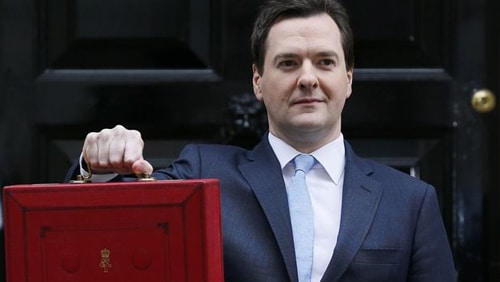Chancellor George Osborne’s budget has been slammed by environmental experts, commentators and politicians for its failure to prioritise tackling climate change while claiming to put future generations first.
The 2016 budget has been widely criticised for its short-termism as well as its support for the oil and gas industry just one day after the government pledged to enshrine a net zero-carbon emissions target in law.
“Doing the right thing for the next generation is what the government and this budget is about,” Osborne said during his budget speech on Wednesday. “I am not prepared to look back at my time here in this parliament, doing this job and say to my children’s generation: I’m sorry. We knew there was a problem … but we ducked the difficult decisions and we did nothing.”
It did not take long to realise this statement came with a few blind-spots.
As Green MP Caroline Lucas said: “This climate-wrecking budget shows that the Government’s talk of putting the next generation first is nothing short of sheer hypocrisy.”
Osborne parroted future of “next generation” 19 times – yet announced climate-wrecking policies that’ll threaten their future #Budget2016
— Caroline Lucas (@CarolineLucas) March 16, 2016
“Once again the Chancellor is taking the country down a dangerous path by ignoring the threat of climate change,” Lucas continued.
“This Budget locks us into fossil fuel dependency and completely contradicts the Prime Minister’s call to action at the Paris climate talks. His plans to cut tax for North Sea oil and gas – rather than investing in a just transition away from fossil fuels – are myopic and dangerous.”
And while there was some good news for the environment, including new renewable energy funding and additional funds for flood defence, James Murray of BusinessGreen writes that Osborne clearly didn’t “get the memo” about the zero-emissions goal given the £1bn in tax breaks announced for the fossil fuel industry.
Here’s how Treasury justifies it Oil&Gas sector tax breaks and its action on climate change https://t.co/QosTGcyAHm pic.twitter.com/bIImZM6NoH
— Leo Hickman (@LeoHickman) March 16, 2016
How to judge the budget and cut through all the noise? How about share prices? pic.twitter.com/aDU94asAW9
— Matthew Butcher (@matthew1butcher) March 16, 2016
Sepi Golzari-Munro Head of the UK Programme at the energy and climate change think tank E3G, agreed: “This Budget demonstrates the growing gulf between the UK’s climate policy and its energy policy keeping investor confidence low, the cost of capital high and leaving consumers to pay the price.
Writing in the Guardian, Damian Carrington further highlights this gulf between rhetoric and action: “Osborne and David Cameron talk tough on climate change, citing it as ‘one of the most serious threats facing our world … a threat to our national security and economic prosperity’ and promising a zero-carbon Britain . So to ignore the climate crisis, in a speech centred on ‘doing the right thing for the next generation’, is bewildering.”
Indeed, temperature increases experienced last month shattered all records. But despite this, the issue of climate change did not get a single mention in Osborne’s speech.
Labour leader Jeremy Corbyn criticised the budget for having unfairness “at its very core.”
When it comes to renewable energy and green initiatives, the government’s record has been “an abject failure” he said, emphasising that the renewables industry is “vital” to our economy, “to our planet, and indeed our whole existence”.
“It’s almost as if the recent UN climate agreement never occurred,” said Friends of the Earth campaigner Liz Hutchins. “What happened in Paris, appears to have stayed in Paris.”
Want to know more about what was announced in the budget? Check out the coverage on Carbon Brief, Climate Home, Bloomberg and BusinssGreen.
Photo: Lee Davy via Flickr
Subscribe to our newsletter
Stay up to date with DeSmog news and alerts







